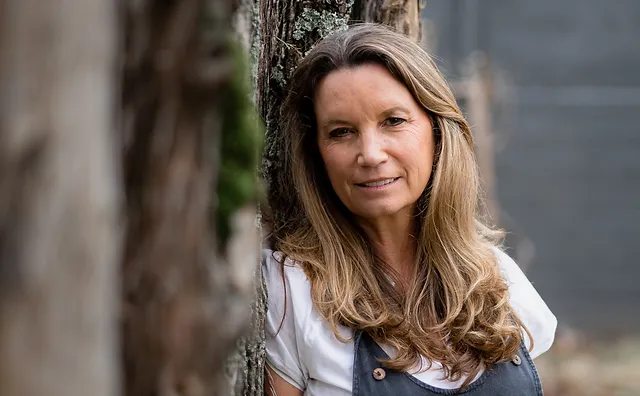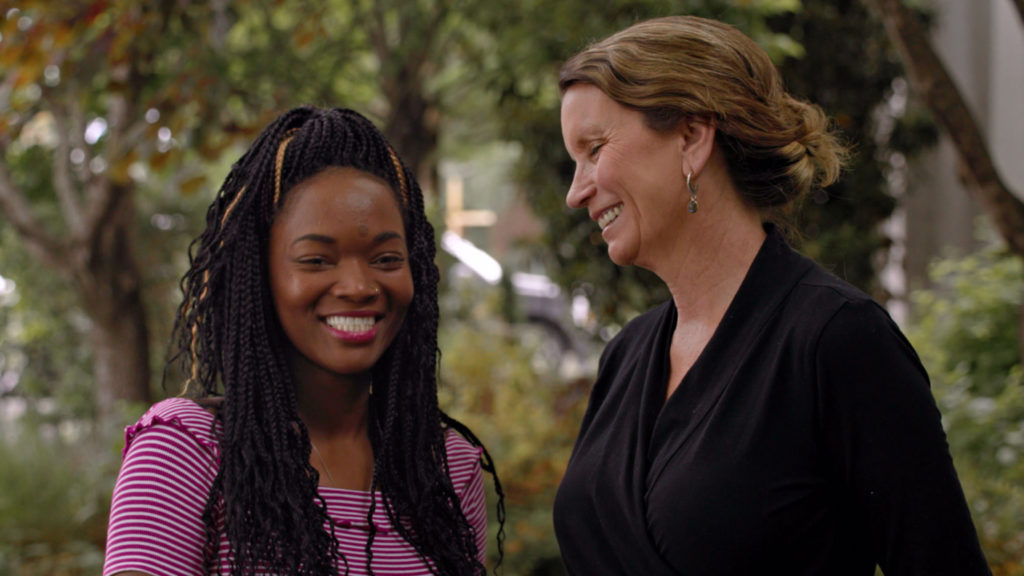Thistle Farms helps women survivors build a strong future for themselves and others

Thistle Farms started with Becca Stevens’ dream. A founder with compassion, creativity, and vision, Stevens imagined a community where creativity, stories, and safety could combine to bring healing to women survivors of sex trafficking and exploitation.
That dream became Thistle Farms, a nonprofit that provides a lifelong community of support for women who have experienced trauma. The women of Thistle Farms have a safe place to live as well as a sustainable and fulfilling job. They make and sell candles, hand soaps, jewelry, lotions, body balms, and more, empowering them to find their footing, learn new skills, and help each other grow.
From a single house in 1997, Thistle Farms has grown into a national network with global partners who bring their empowerment-first model to more than 12,000 women around the U.S. The work has been featured in many national outlets and gained a lot of attention and recognition, but for Stevens, it is all deeply personal.
Stevens is an abuse survivor herself and that childhood experience opened her eyes to the real ways women can empower each other to survive and thrive.
Stevens sat down with us to talk a bit about her life’s work and what is next for Thistle Farms.
What was your childhood like?
My dad got called to serve a [church] community in Nashville, Tennessee. My mom, 35 years old, packed up five kids and we drove down here. And that was the year my father was killed by a drunk driver. So I was raised in Nashville by a single mom, you know, that did everything she could to keep us safe and well.
My story is a story of what happens to a lot of kids when you have a trauma like the breadwinner being killed instantly by a drunk driver and the family kind of being thrown into chaos. Perpetrators then pick on those families.
And that’s what happened to me. So one of the leaders that was at the church where my dad was serving before he was killed befriended the family, you know, stepped in and that was where my abuse began. I was six years old. It started right in the fellowship of the church at a spaghetti supper.
Who empowered you?
I had a really amazing mother. And I had kind sisters. I had some good support systems at school.
My mom was super resourceful. As you can imagine, a single mom at 35 with five kids, never been in the South before, didn’t know a ton of people, and she had this idea that we could make anything, and by making it she meant physically making it with our hands. And not only was it practical, cheaper, but it also lifted our spirits and it made you feel like simple things could be really beautiful.
So she taught us how to melt the old crayons that broke and turn them into candles. She taught us how to take all of our own clothing and just strip it down and make rag rugs that were stunning. All those things she did, you know, as free entertainment, as ways for us to start understanding the beauty in things that people had discarded, and it was a good way to spend time together and share stories.
“I never wanted to start a program for women. I really wanted to start a program with women.”
Was this creativity what inspired Thistle Farms? Or was it wanting to help generally?
I never started Thistle Farms to help a subculture of women who we have deemed broken by one thing. I always started so we could challenge a whole culture so that all of us can be better. So that we can stop believing in the myth that women are choosing this life. So that we can stop the silence around childhood trauma especially sexual abuse. So that we can quit criminalizing victims.
I never wanted to start a program for women. I really wanted to start a program with women.
I started visiting the jail while I was still in divinity school, and I remember once going into the jail. And the policeman guarding the jail, the priest going to visit the jail, the attorney who was representing the woman I was going to see, the counselor on the floor where I was seeing the women in jail, and the prisoner herself – we had all gone to the same high school.
I remember thinking that day, ‘We could have easily changed places, all of us.’ I remember thinking, Whatever we’re gonna develop for the women that I want to be serving, I want it to be done exactly as if it was me that was sitting in the jail coming out looking for a safe place.

What sets Thistle Farms apart?
About 60% of all the money that we bring into Thistle Farms comes from the sale of our products. So, we are becoming more and more economically independent even as a community, which is a huge boost.
In the meantime, you know, you’re providing hundreds of thousands of hours of work for individual women, which means that individually, people are becoming more self-sustaining.
Can you tell us some of the stories that have really moved you?
Terrié is a 2022 graduate. Terrié is a joy. Terrié is so funny. I really got to know Terrié when we were sitting down to plan a national conference in the midst of the pandemic. And I knew her before then because I knew her aunt, who was also a graduate of the Thistle Farms community.
So, I knew her probably before she even knew me. But when you meet Terrié, you can’t help but fall in love with her. She knows how to do all the spreadsheets and keep the whole database for the whole network of nearly, you know, 100 sister organizations. She’s doing an amazing job on that front. I’ve seen her interact with so many people, when the people come in for their training on how to start a Thistle Farms program… She’s just welcoming. She makes people feel at ease.
Over the years I’ve cared less and less in some ways about what success looks like and what the best stories are. I mean, love has as much to teach us in our quiet times and our failures and all of that. But it sure is fun sometimes to watch somebody just excel and lighten up a room on their journey. And that is what Terrié’s done.

Is there a timeline on recovery from trauma?
I don’t think recovery really happens in one month, 90 days, six months. I think it takes a long time to really get a foundation. And to make restitution. I mean just with your credit record it takes longer than that. And so it doesn’t make sense to say, ‘Okay, you can come here for 30, 60, 90 days and then we want you to be well and go back out into the world.’ That didn’t feel very loving to me.
“I think of love as consistency. Always showing up.”
What are key things you’d like people to know about your programs and messages?
One of the core values of Thistle Farms is that we come together as equals. Our motto is, ’Love heals.’ I think of love as really the powerful force for change in the world. I think of love as consistency. Always showing up. Not turning our back on the hard things. And speaking our truth with humility and courage. When I think of healing, I think of this intentional walk towards wholeness.
What have you learned about yourself through your work?
I like to think of myself as not broken, but I have been broken open.
What is it about women’s trauma that is particularly pressing?
The women that are coming into Thistle Farms are suffering from some of the oldest scars humanity has ever dealt people. Childhood trauma, the violence and vulnerability of poverty, the horrific nature of sexual assault and violence and exploitation, the silence around those things, the systems that are set up around all of those things affects every part of our community.
Community is the oldest entity this world knows for healing. We come together and we say, ’We are gonna do this work together.’ We come in a circle, we give, we take, we stay with each other through the good and bad times, we laugh and we cry, and that is what our secret sauce is for the success we have had.
Learn more about Stand Together’s health care reform efforts.
/

